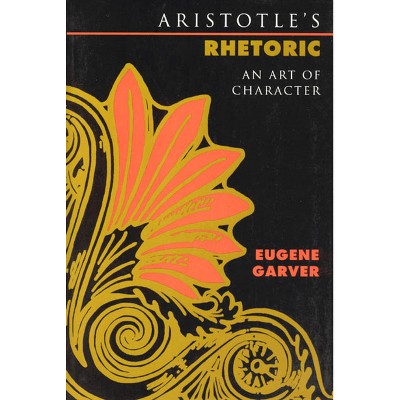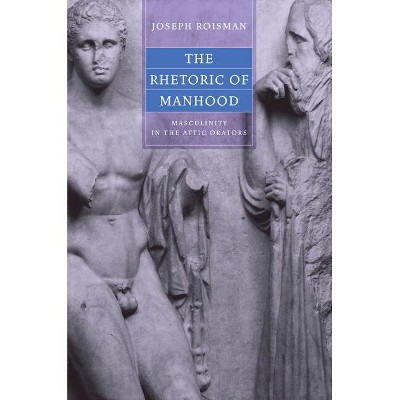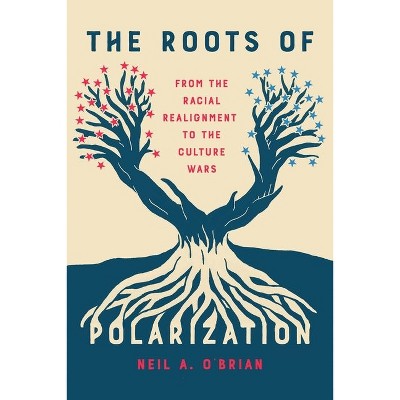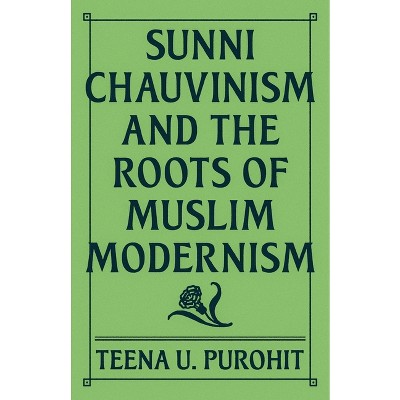Sponsored

The Roots of Rhetoric - by Haider K Nizamani (Hardcover)
In Stock
Sponsored
About this item
Highlights
- In an unanticipated flurry of atomic weapons testing--a total of 10 tests over 20 days in 1998--India and Pakistan announced to the world their emergence as full-fledged nuclear powers.
- About the Author: HAIDER K. NIZAMANI is Postdoctoral Fellow at the Center for Nonproliferation Studies, Monterey Institute of International Studies.
- 176 Pages
- Freedom + Security / Law Enforcement, General
Description
About the Book
In an unanticipated flurry of atomic weapons testing--a total of 10 tests over 20 days in 1998--India and Pakistan announced to the world their emergence as full-fledged nuclear powers. How, Nizamani asks, did nuclear escalation come to dominate the agendas of both nations? In a comparative analysis, Nizamani reveals the political underpinnings of nuclear weapons development, arguing that Indian and Pakistani nuclearization is linked to processes of national formation.
Working within the Critical Security Studies framework, Nizamani traces the development of nuclear discourses in India and Pakistan from early nationhood to the present. Nizamani defers conclusive identification of real or objective national threats, and instead examines the historical specificities and internal tensions of the dominant Indian and Pakistani security discourses. Additionally, Nizamani provides an overview of anti-nuclear dissent in South Asia.
Book Synopsis
In an unanticipated flurry of atomic weapons testing--a total of 10 tests over 20 days in 1998--India and Pakistan announced to the world their emergence as full-fledged nuclear powers. How, Nizamani asks, did nuclear escalation come to dominate the agendas of both nations? In a comparative analysis, Nizamani reveals the political underpinnings of nuclear weapons development, arguing that Indian and Pakistani nuclearization is linked to processes of national formation.
Working within the Critical Security Studies framework, Nizamani traces the development of nuclear discourses in India and Pakistan from early nationhood to the present. Nizamani defers conclusive identification of real or objective national threats, and instead examines the historical specificities and internal tensions of the dominant Indian and Pakistani security discourses. Additionally, Nizamani provides an overview of anti-nuclear dissent in South Asia.Review Quotes
"'The Roots of Rhetoric' is a valuable addition to scholarly analyses of the genesis and politics of nuclear weapons on the Indian subcontinent...[t]he book points to the striking similarity of a pseudo 'political realism' that compels Indian and Pakistani nuclear hawks to dwell on identical fears and advocate the same plan of action."-Pervez Hoodbhoy Professor of Physics Quaid-I-Azam University, Islamabad
.,."a good attempt in surveying the nuclear debate and the domestic complexities involved therein. Future scholars should build upon the themes raised...the book is highly recommended for both..the specialist as well as the general reader who is interested in the dynamics of the Indo-Pak nuclear discourse."-Dr. Maqsudul Hasan Nuri The Nation (Pakistan)
.,."this book contains valuable discourse analysis which helps in demystifying the prevailing myths about the two nuclear programmes and explains the historical specificity of the canons of dominant security discourses."-Dr. Mohammad Waseem Dawn (Pakistan)
.,."Haider Nizamani's thoughtful and unusual book...concerns itself with the nuclear discourse--"nukespeak"--within India and Pakistan after their nuclear tests...there is very little that one can seriously disagree with in this highly perceptive analysis."-P.R. Chari The Book Review (India)
.,."Nizamani's assumptions are fresh...[t]his book is...highly recommendable for approaching Indian and Pakistani nuclear history in a comparative framework..."-Indiaserver.com
?...a good attempt in surveying the nuclear debate and the domestic complexities involved therein. Future scholars should build upon the themes raised...the book is highly recommended for both..the specialist as well as the general reader who is interested in the dynamics of the Indo-Pak nuclear discourse.?-Dr. Maqsudul Hasan Nuri The Nation (Pakistan)
?...this book contains valuable discourse analysis which helps in demystifying the prevailing myths about the two nuclear programmes and explains the historical specificity of the canons of dominant security discourses.?-Dr. Mohammad Waseem Dawn (Pakistan)
?...Haider Nizamani's thoughtful and unusual book...concerns itself with the nuclear discourse--"nukespeak"--within India and Pakistan after their nuclear tests...there is very little that one can seriously disagree with in this highly perceptive analysis.?-P.R. Chari The Book Review (India)
?...Nizamani's assumptions are fresh...[t]his book is...highly recommendable for approaching Indian and Pakistani nuclear history in a comparative framework...?-Indiaserver.com
?[this] new authoritative study...makes clear that [India's and Pakistan's] nuclear programmes did not originate in response to specific security problems. They were born in visions of national identity. Adversaries were not the cause. Rather, they had to be found.?-Jonathan Power Dawn (Pakistan)
?Haider Nizamani...has chosen an unusual but most interesting topic for detailed analysis. He has examined the way India and Pakistan have used language to define and exploit their nuclear ambitions. ...The book adds another dimension to a discussion of rhetorics by linking it to the theoretical framework developed around nuclear weapons by such antipodal scholars like Kenneth Waltz and Scott Sagan.?-Khaled Ahmed The Friday Times (Pakistan)
?It provides a useful historical overview and valuable bibliographic reference to internal debates in India and Pakistan.?-Political Science Quarterly
?The strengths of the book are that it gives us insights into how a weapon system takes on ideological and symbolic value. The analysis of discourses in both countries shows how identities are constructed around these focal symbols and how attitudes towards nuclear weapons become the criteria of judging ones nationalist and religious credentials. The other strength of the book is that it is fair and even-handed...indeed, the book can be used as an excellent study of the construction of the 'other'...I recommend the book to experts on South Asia as well as to ordinary readers--indeed, especially to the latter.?-Dr. Tariq Rahman The News International (Pakistan)
?This book is highly recommended for approaching Indian and Pakistani nuclear history in a comparative framework that which, although not singular, enhances the wealth of literature from a 'regional' perspective that has poured in ever since 'Buddha' smiled again in the Pokhran desert and the 'Islamic bomb' shattered the silence of the Chagai hills.?-Contemporary South Asia
..."Nizamani's assumptions are fresh...Ýt¨his book is...highly recommendable for approaching Indian and Pakistani nuclear history in a comparative framework..."-Indiaserver.com
"Ýthis¨ new authoritative study...makes clear that ÝIndia's and Pakistan's¨ nuclear programmes did not originate in response to specific security problems. They were born in visions of national identity. Adversaries were not the cause. Rather, they had to be found."-Jonathan Power Dawn (Pakistan)
..."a good attempt in surveying the nuclear debate and the domestic complexities involved therein. Future scholars should build upon the themes raised...the book is highly recommended for both..the specialist as well as the general reader who is interested in the dynamics of the Indo-Pak nuclear discourse."-Dr. Maqsudul Hasan Nuri The Nation (Pakistan)
..."this book contains valuable discourse analysis which helps in demystifying the prevailing myths about the two nuclear programmes and explains the historical specificity of the canons of dominant security discourses."-Dr. Mohammad Waseem Dawn (Pakistan)
..."Haider Nizamani's thoughtful and unusual book...concerns itself with the nuclear discourse--"nukespeak"--within India and Pakistan after their nuclear tests...there is very little that one can seriously disagree with in this highly perceptive analysis."-P.R. Chari The Book Review (India)
..."Nizamani's assumptions are fresh...[t]his book is...highly recommendable for approaching Indian and Pakistani nuclear history in a comparative framework..."-Indiaserver.com
"[this] new authoritative study...makes clear that [India's and Pakistan's] nuclear programmes did not originate in response to specific security problems. They were born in visions of national identity. Adversaries were not the cause. Rather, they had to be found."-Jonathan Power Dawn (Pakistan)
"Haider Nizamani...has chosen an unusual but most interesting topic for detailed analysis. He has examined the way India and Pakistan have used language to define and exploit their nuclear ambitions. ...The book adds another dimension to a discussion of rhetorics by linking it to the theoretical framework developed around nuclear weapons by such antipodal scholars like Kenneth Waltz and Scott Sagan."-Khaled Ahmed The Friday Times (Pakistan)
"It provides a useful historical overview and valuable bibliographic reference to internal debates in India and Pakistan."-Political Science Quarterly
"This book is highly recommended for approaching Indian and Pakistani nuclear history in a comparative framework that which, although not singular, enhances the wealth of literature from a 'regional' perspective that has poured in ever since 'Buddha' smiled again in the Pokhran desert and the 'Islamic bomb' shattered the silence of the Chagai hills."-Contemporary South Asia
"The strengths of the book are that it gives us insights into how a weapon system takes on ideological and symbolic value. The analysis of discourses in both countries shows how identities are constructed around these focal symbols and how attitudes towards nuclear weapons become the criteria of judging ones nationalist and religious credentials. The other strength of the book is that it is fair and even-handed...indeed, the book can be used as an excellent study of the construction of the 'other'...I recommend the book to experts on South Asia as well as to ordinary readers--indeed, especially to the latter."-Dr. Tariq Rahman The News International (Pakistan)
About the Author
HAIDER K. NIZAMANI is Postdoctoral Fellow at the Center for Nonproliferation Studies, Monterey Institute of International Studies./eShipping details
Return details
Trending Non-Fiction











